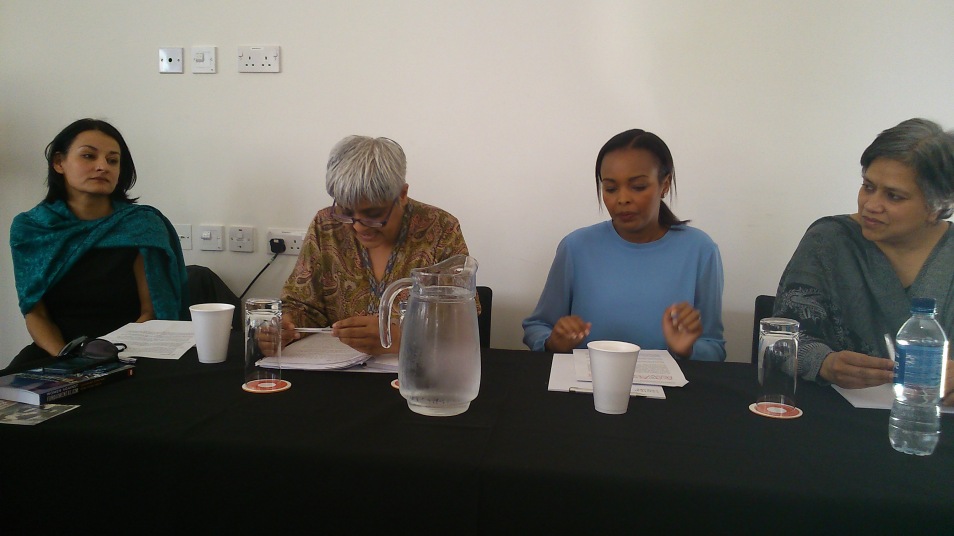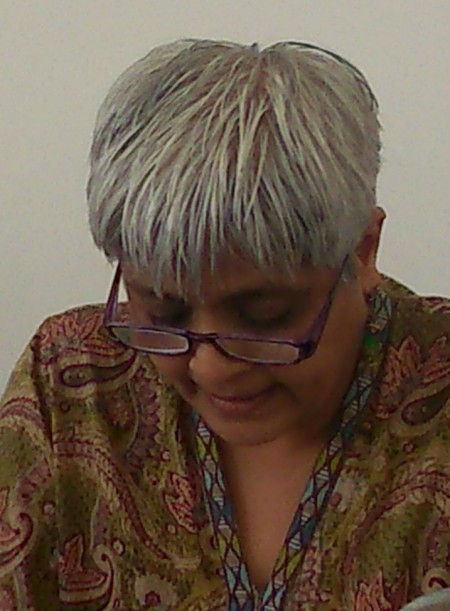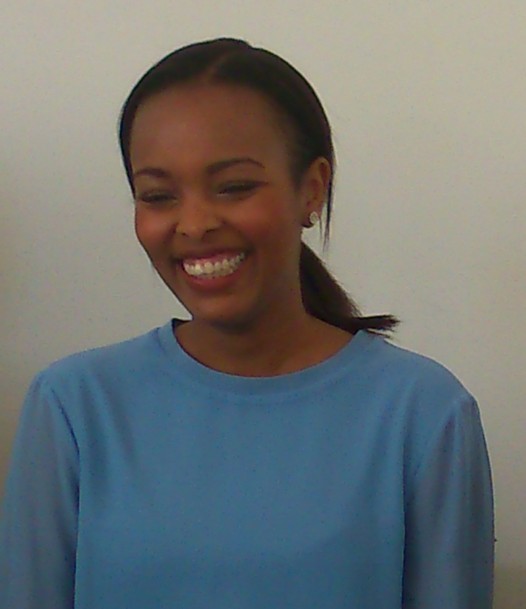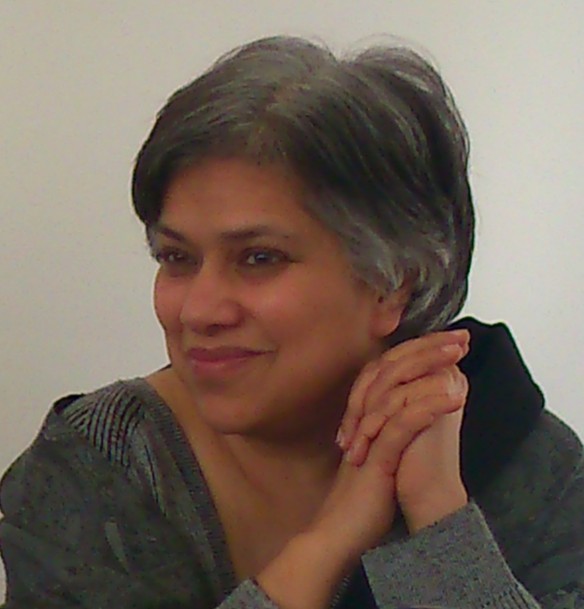Guest post by Iram Ramzan, cross-posted from her blog with her permission.

l-r Sandhya Sharma, Pragna Patel, Amal Farah and Gita Sahgal
“It’s women who have to take up these issues. The left is not going to do it. The left are trying to silence us.”
You would be forgiven for thinking this statement was made quite recently. In fact, it is made by one of the women who appeared in ‘Struggle or Submission’, which documented the beginnings of Women Against Fundamentalism (WAF).
WAF was set up partly in response to the controversy surrounding Salman Rushdie’s The Satanic Verses, but also with the aim of challenging fundamentalism in all religions.
Human rights activist and co-founder of Southall Black Sisters Gita Sahgal made the documentary, which filmed women working and living at a women’s refuge in Brent, who wanted the choice to practice, or not practice, the faith which they were born into. Many of the Muslim women wanted to follow their own interpretations of Islam without any interference from male clerics – a debate that still continues to this very day. Some of those women could not understand how young women were taking up the veil after decades of fighting for the right to remove it.
The documentary was shown as part of an International Women’s Day talk at Central Library in Manchester, titled ‘Women Against Fundamentalism – Stories of Dissent and Solidarity’. It showed a group of women from all backgrounds marching in support of Rushdie as part of their own right to religious control, at a time when race made way for religion in identity politics. They were attacked by both the religious fundamentalists and the fascists simultaneously.
The three speakers were co-founders of SBS, Pragna Patel and Gita Sahgal, and Amal Farah, an ex-Muslim from Somalia. Sandhya Sharma, a Manchester-based activist, chaired the discussion.
How fitting that these women were talking about their challenges against both religious fundamentalists and racists alike while an EDL march was taking place in the city centre.
Pragna said that WAF predicted the rise of religious fundamentalism.
“We don’t take pleasure in the fact that we were right in our predictions,” she explained. “Everything we will say has already been said 25 years ago.”

Pragna Patel
This was echoed by Gita Sahgal, who added: “The things we talked about have remained valid.”
SBS was described as the “rebellious child of Thatcherism”, which “challenged the myth of the community”. Even today, we find that look at communities through the prism of faith, which means that we either ignore voices of dissent or deliberately shut them down. Dissenters were told repeatedly (and shamefully) by the left that “now is not the time to raise these issues”.
“The only tools we have are our voices of dissent,” Pragna said. “Suppression of dissent for women is literally a matter of life and death.
Amal’s family fled war-torn Somalian to Canada before settling in Britain. Her mother then started practicing a more austere version of Islam, swapping her Somali dirac – a kaftan-like garment – to the Islamic jilbab which covers women from head to toe.
To be Somali is to be Muslim, Amal explained. She describes having her first period as an end to what few freedoms she had had as a child and told of her secret passion for football, a sport which she was never allowed to play because a male could, by chance, walk past and see the females behaving ‘immodestly’.
“I was never a religious person, I just happened to be born into [Islam]”, she said. She came “out” as an ex-Muslim in 2004, much to her mother’s horror who then moved her siblings to Dubai and then back to Somalia.

Amal Farah
Amal’s story is not that uncommon. More and more ex-Muslims are “coming out” and sharing their stories, though often they must do so secretly, for fear of reprisal. In fact, Amal was so scared of what could happen that she was not listed as a speaker at the event. Understandable perhaps in a Muslim-majority country, but in Britain in 2015? A travesty.
It is not the other, as Gita explained, but killing the other within. Minorities within minorities, who dare to speak out and challenge the status quo. Shamefully, such voices have been stifled by even our governments who willingly worked with “non-violent extremists” who were known to have “run death squads” abroad.
“Non-violent extremists – what a dangerous and ridiculous oxymoron”, Gita said. “The government knew what they were doing.”
She also expressed frustration at the fact that young people were joining ISIS and getting into trouble with the authorities while extremist leaders, such as Anjem Choudary, are able to roam free.
I asked the panel if they believe the media and the government have finally woken up to these problems. After all, the pseudo-human rights group CAGE has lost its funding from the Roddick Foundation and the Joseph Rowntree Charitable Trust, after its research director Asim Qureshi claimed that the security services helped “radicalise” Mohammed Emwzi aka ‘Jihadi John’. Will we be having the same discussion in another 25 years’ time?
Gita replied: “Things have shifted. People say the tide is turning. At most we’re like pebbles on the beach being swept away. It’s a long struggle.”

Gita Sahgal
It is hard for one not to feel disheartened when realising that what the likes of Sahgal and Patel are saying now has been said before and will continue to be said and no matter how hard activists drum home this message, some continue not to pay attention.
A good demonstration of this was when an Indian lady said she could not support SBS’ stance on the Charlie Hebdo killings, describing the magazine as ‘racist’. Pragna challenged this myth superbly and explained that “the victims of fundamentalists are also alienated and disenfranchised.
If the likes of Gita, Pragna and Amal are just pebbles on the beach, they are an important collection of pebbles. We may very well be having this discussion for decades to come, but the difference now is that more and more voices have been added to this debate, creating a mass movement to challenge fundamentalism. We will not remain the “other within” for much longer.
Happy International Women’s Day to the brave women who continue to speak out and do important work within their communities.
Iram Ramzan is a reporter and freelance journalist.

Southall Black Sisters is probably the most progressive group any kind that we have in Britain.
Viva!